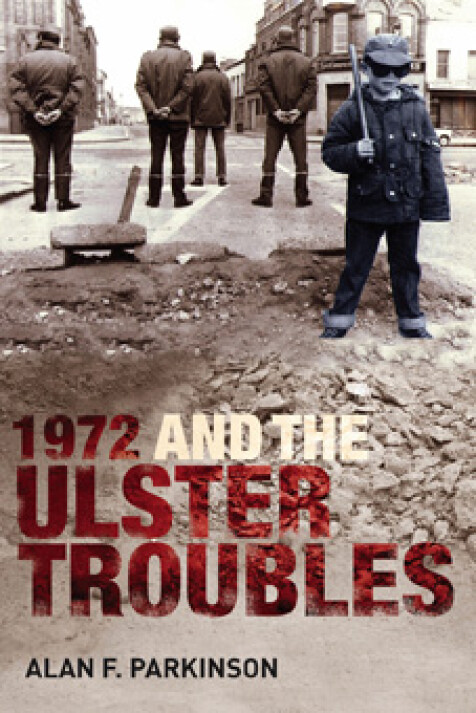1972 and the Ulster Troubles
Alan F. Parkinson
'For [Parkinson] the book “represents a personal journey” and describes a year in which his own life was taking a new direction, at a time “when our society was under considerable threat of internal combustion”. This personal dimension adds greatly to the value of the book, as does the liberal use of oral history and interviews which Parkinson conducted with over forty people … The result is a record of a wide range of experiences and reactions, often vividly expressed in an immediate language, which deepens our understanding of Northern Ireland in 1972 … This book leaves us with a picture of 1972 as a contradictory year of beginnings and endings', Kevin Bean, Twentieth-Century British Studies (September 2013).
‘Alan F. Parkinson’s new book is a welcome addition to the growing literature examining the genesis and early years of the Northern Ireland conflict … this book, dealing with the single bloodiest year of the conflict, is important … The ferocity of the violence during 1972 alone makes it worthy of study: nearly 500 deaths, thousands of injuries, car bombs across the North as well as in Dublin, Cavan and Aldershot, and escalating sectarian assassinations. The fact that the British Army lost 108 regular soldiers in 1972 is indicative of the intensity of the conflict … Parkinson, who himself lived through 1972 in Northern Ireland, manages to convey something of the chaos and fear of that year. The book’s strength is its use of oral material from interviews conducted by the author as well as memoirs and contemporary sources. In this way we get some sense of what Bloody Sunday, the Aldershot bombing, Bloody Friday, Claudy and all the other horrors of 1872 felt like for those who were there. Parkinson is also good at including the voices of those at the sharp end of the conflict … There is a welcome chapter on “Southern Views”, and Parkinson notes the impact of both Bloody Sunday and Bloody Friday in the Republic … this book is an important and valuable reminder of the real horror of the “Troubles”', Brian Hanley, Irish literary Supplement (Spring 2012).
‘Alan Parkinson has written a useful contextualized history of one of the worst years of violence in Northern Ireland – 1972 … Parkinson deals sure-footedly with the major events [and his] judgments are fair … the main value of the book lies in its contextualization of these events in the everyday experiences of those caught in the violence ... The real value of the book is in giving a flavour of the time, showing how the events were understood by those caught in them and how radically different perspectives emerged. At this detailed level, his account is sensitive and accurate … This level of detail is necessary if we are actually to learn lessons from the Northern Ireland conflict … [this book is] enlightening, a vignette of one year. It provides a good empirical basis for the causal analysis of the movement into (and later out of) conflict and violence', Jennifer Todd, Journal of British Studies (July 2011).
'In many ways, then, the book is a highly unsettling read, but it is necessary nonetheless because, like all history, we can only move on to the future when we have a deep understanding of the past ... A chronological history of 1972 could become numbing and de-sensitising, but Parkinson skilfully engages the reader to imagine what it was like to have lived through the carnage of that year. As sectarian trouble rears its head once more in the north, we must never forget the cruel lessons of the past', Shane Creevy, Politico online journal (April 2010).
‘The book does not take sides. Parkinson for the most part lets the sources speak for themselves whether they be official reports, newspaper articles or eye-witness accounts. What emerges is a detailed account of one of the worst years of the troubles, a year whose events give rise to numerous “what ifs” and set the template for a further three decades of violence', Books Ireland (Summer 2010).
‘Well researched and even-handed, Parkinson’s book will appeal to readers interested in recent Irish history, and is an essential addition to any collection on Ireland', Reference & Research Book News (August 2010).
‘Worthy of consideration for those teaching Northern Ireland … [Parkinson] charts this turbulent year brilliantly, blending narrative and analysis', Liz Russell, HTAI newsletter (Winter 2010/11).
‘An extremely thoughtful and intelligent book which deserves a wide readership', Gordon Lucy, News Letter (January 2011).

